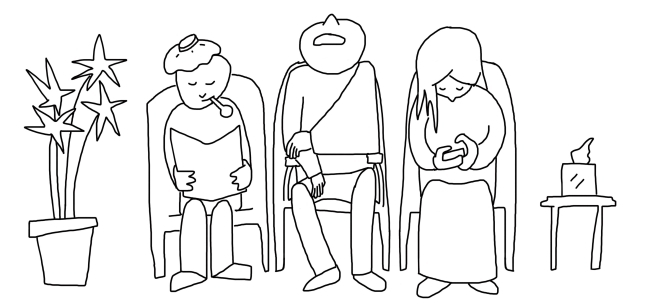A Word, My Liver: Professor-Student Textbook Brings to Life Colorful Expressions, Cultural Connections
December 21, 2021
Davidson College Professor Rebecca Joubin
You are donkey blooded.
Don’t get offended if someone tells you that—they’re complimenting your hard-working ways.
And again, don’t fret if someone says your mother-in-law doesn’t love you. They’re only pointing out that you’re late. Is someone laying the flattery on thickly? You might respond with “stop putting watermelons under my armpits.”
These are a few of the idioms Davidson College Professor Rebecca Joubin grew up with in her Farsi-speaking family. They can sound silly when you translate them literally, but they’re the common, colorful expressions that make the language rich with imagery.
Farsi, also known as Persian, is the main language in Iran, where Persians make up the largest ethnic group. Forms of it are also spoken in Afghanistan and Tajikistan.
A few years ago, Joubin and her students plotted out their dream textbook. Instead of just dry text laying out rules for spelling, pronouns, and conjugations, they’d include pictures, proverbs, and idioms. Their textbook would touch on holidays, historical figures, and events as well as art, culture, and social cues.
They turned their group project into a real textbook, Accelerated Persian: A Course in the Persian Language and Its Culture, that’s now taught in her Davidson classroom and at other institutions.
“It’s the kind of insight you need to have to truly understand the culture,” Joubin says. “The students took off with it; they had so much fun using the expressions on each other—and it was so great to see these things through their eyes.”

The 440-page textbook, published by IBEX Press, includes matching games and fill-in-the-blank vocabulary exercises. Joubin hired Hampton Stall ’15, then a graduate student at Emory University, to illustrate the more than 250 pictures and cartoons.
Stall, now a senior program associate at the Carter Center in Atlanta, says he had great fun illustrating the book. At Davidson, he was a political science major with a minor in Arab studies. He enjoyed Arabic studies classes and once, for a final in a class on Arabic-language comic books, illustrated one.
The textbook is amazing, I really like the art. When you’re seeing the illustrations, they’re not only funny, they also really help you memorize the vocabulary.
After spending 120 hours “drawing” on an iPad he won in a raffle, the textbook illustrations were ready.
“Dr. Joubin gave me a lot of creative freedom,” Stall says. “We wanted to make it simple and interactive so students could color in the pictures and use them to remember the phrases that people use.
“When I compare it to other language textbooks I had, this seems a lot better,” Stall says.
“I’m a visual learner and when I was creating the drawings, I was really excited that we were producing content that appealed to people like me.”

Ten students, now alumni with majors that include Arab studies, political science, religion, art, and economics, each wrote a chapter.
Current students say the book has been an important resource.
“I really love it,” says Josef Milstein ’22, a history major with an Arab studies minor. “In Persian, a lot of the language is figurative, so it’s really important to learn these common sayings.”
He, Joubin, Adam Gelman ’21 and Kieran Clark ’21, are publishing a Hebrew-Arabic textbook together. He says the Persian textbook offered helpful ideas.
The class also listens to music and plays Backgammon in Persian. Milstein, who sees a potential career in international diplomacy, says it’s helpful to have a class that combines so many different aspects of a culture.
“It’s a small class, and it’s very well-structured,” he says. “The textbook is amazing, I really like the art. When you’re seeing the illustrations, they’re not only funny, they also really help you memorize the vocabulary.”
Emory Bouffard ’24 says the class’s fast pace and deep dive into speaking and culture have helped her pick up the language more quickly than she expected.
“Dr. Joubin goes into a lot more depth than you might get in other language classes,” Emory says. “It’s very challenging, but you really learn.”
Joubin says she never noticed how many Farsi idioms she used until she began learning Arabic in college and realized how many expressions could be lost in translation.
She remembers once walking through Syria when a neighbor said, “We have to see each other in the next two days.”
So, the next day, she called the neighbor, who seemed taken aback. Joubin later learned that the expression roughly translates into, “Maybe one day in the far future we will see each other or maybe not”—and most definitely isn’t an urgent command to get together.
“I can only imagine how many times I messed up,” she says. “If you’re truly going to learn a language and culture, it’s important to know these things.”
She enjoys watching the students banter in class, using expressions from her childhood.
“I didn’t really appreciate it when I was growing up,” she says. “There’s such a sweetness and a warmth to the language.”
Everyone has a favorite expression or two, or three. Bazi Gouche, “You have a playful ear,” reminds Joubin of when her mom would tell her that as a child. Loosely translated, it means “You’re goofing off.”
It’s also a popular phrase among Joubin’s students. As is “my liver” – another phrase a parent might say to a child.
It really means, “my sweetie.”
This article was originally published in the Fall/Winter 2021 print issue of the Davidson Journal Magazine; for more, please see the Davidson Journal section of our website.



